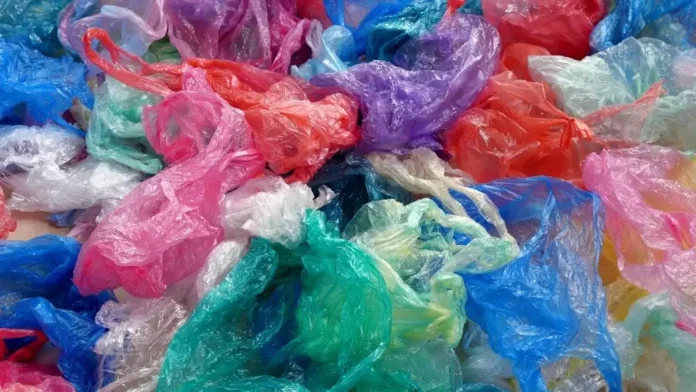Lea Rainey knew that if all the plastic encasing the food she was buying at the grocery store was her pet peeve, other people must be frustrated by it as well. “I could have continued to be one of those people who complained, wishing that ‘they’–companies–would do something about it, or I could do something about it,” she says. In 2019, she opened Roots Zero Waste Market and Café in Garden City, Idaho. The market is Rainey’s small solution to a problem that has overwhelmed North America.
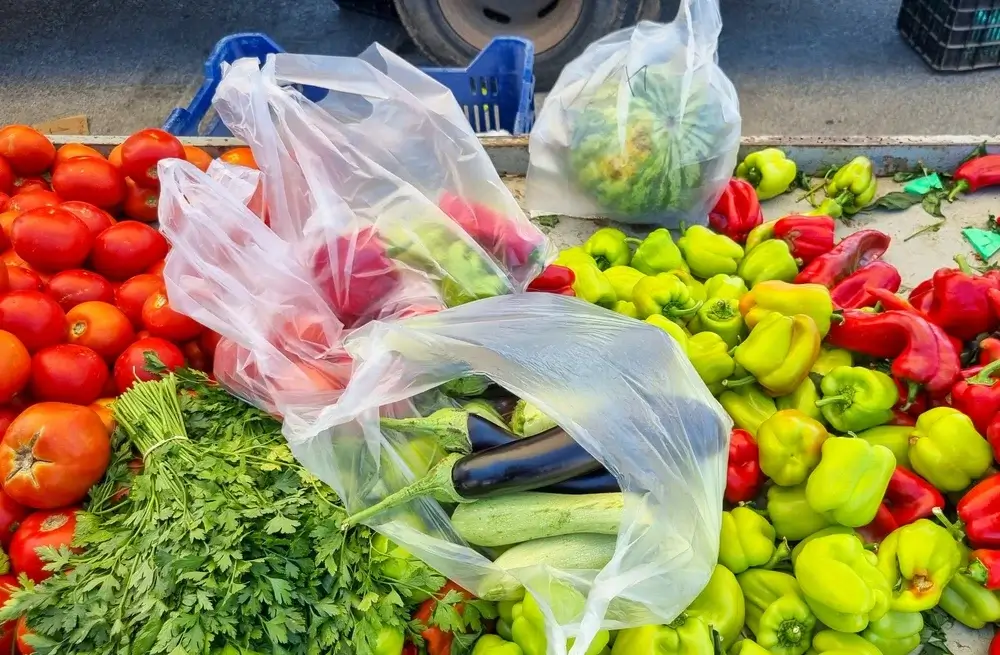

In 2024, Environmental Defence Canada published Left Holding the Bag: A Survey of Plastic Packaging in Canada’s Grocery Stores. They found that over 70 percent of products in the produce and baby food aisle are encased in plastic. It’s not much better in the US. In 2019 Greenpeace USA assessed 20 grocery retailers with a significant national or regional presence. None of the retailers, according to Greenpeace, appeared to have comprehensive plans on how to reduce plastic use.
And while it’s true that consumers increasingly report that using less plastic matters to them, statistics paint a different picture. In 2020, over 242 million Americans used bagged or packaged salads–a figure expected to have risen to 251.47 million in 2024. Salad bags are generally categorized as “plastic film” and they jam recycling machinery. They end up in the landfill where they decompose releasing greenhouse gases into the atmosphere.
READ MORE
Digging In: Food’s Big Plastic Problem.
Alongside the environmental concerns, there are potential health issues. Growing research suggests that chemicals used in the manufacture of plastic contribute to a multitude of health issues. Consumer Reports tested nearly 100 foods ranging from dairy products to canned goods.They found that phthalates, a chemical used to make plastic flexible, were in almost all of them. Studies suggest that regular exposure to phthalates can affect reproductive health and that older adults with phthalates in their bodies were more likely to suffer heart disease.
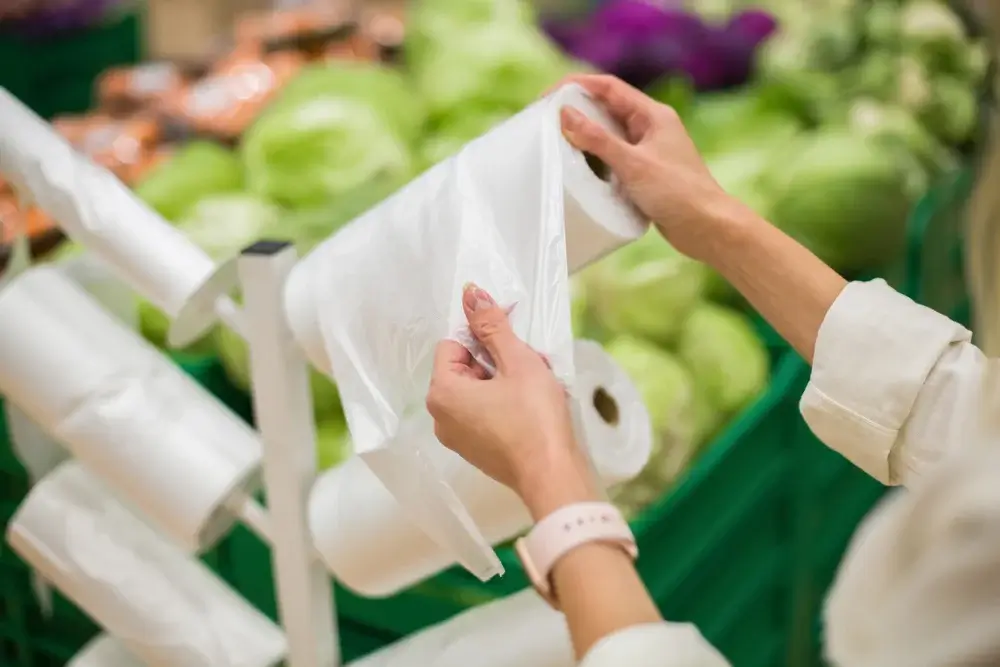

But, there’s hope. In April 2024, the European Parliament voted to approve new rules aimed at reducing plastic packaging. Starting in 2030, bans will be in place for packaging of unprocessed fresh fruits and vegetables. Consumers will be encouraged to bring their containers to restaurants and cafés, which will also aim to offer 10 percent of products in reusable packaging. Since 2022, Canada has banned the use of single use plastic bags at supermarket checkouts. And, in the US more than a hundred municipalities and cities have banned polystyrene ( styrofoam) used in food containers, including Los Angeles and New York. Illinois has gone even further. Legislation came into effect in 2024, permitting restaurants and retailers to fill or refill consumer-owned containers with ready-made or bulk food. Still, plastic packaging persists.
Currently, out of over 300,000 grocery stores in the U.S., which range from expansive supermarkets to small specialty shops, only 1,300 zero-waste stores offer a plastic-free shopping experience.We spoke with a few shops around the country to see how they ditched the plastic.
Maison: pay for food, not packaging
After visiting France and shopping plastic-free, Larasita Vitoux was inspired to open Maison Jar Refillery and Grocery Store in Brooklyn.
“In Europe, there are so many refilleries and stores with bulk aisles,” Vitoux says.
Maison Jar sells bread, vegetables and dried goods all free of plastic covering. According to the store’s year-end impact report for 2023, they are making a dent in plastic use. For example: in 2023 Maison Jar sold 39,075 fluid ounces of kombucha–the equivalent of 2,443 16 oz plastic bottles.
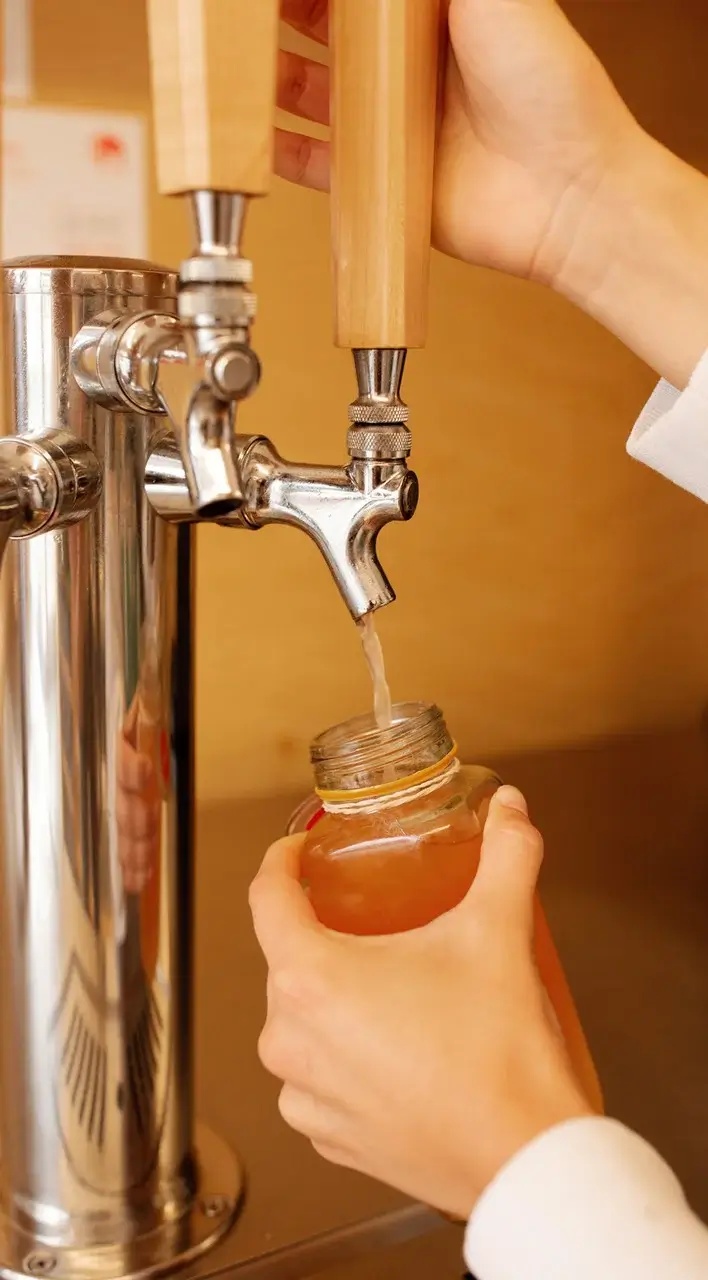

Something Vitoux believes could propel plastic free bulk shopping into the mainstream market is the introduction of Extended Producer Responsibility (EPR) legislation. An EPR shifts the responsibility for managing materials at the end of life away from consumers and onto producers who are required to provide funding and/or services that assist in managing products after the use phase. To accomplish this, as Vitoux points out, there can be an embedded cost associated with the packaged goods that gets passed on to the consumer.
Because bulk buying eliminates packaging, bulk items would not incur this carry over expense.
“It would make bulk much more competitive,” Vitoux says. As of January 2025 legislation to establish EPR’s in New York State, where Maison Jar is, had been introduced.
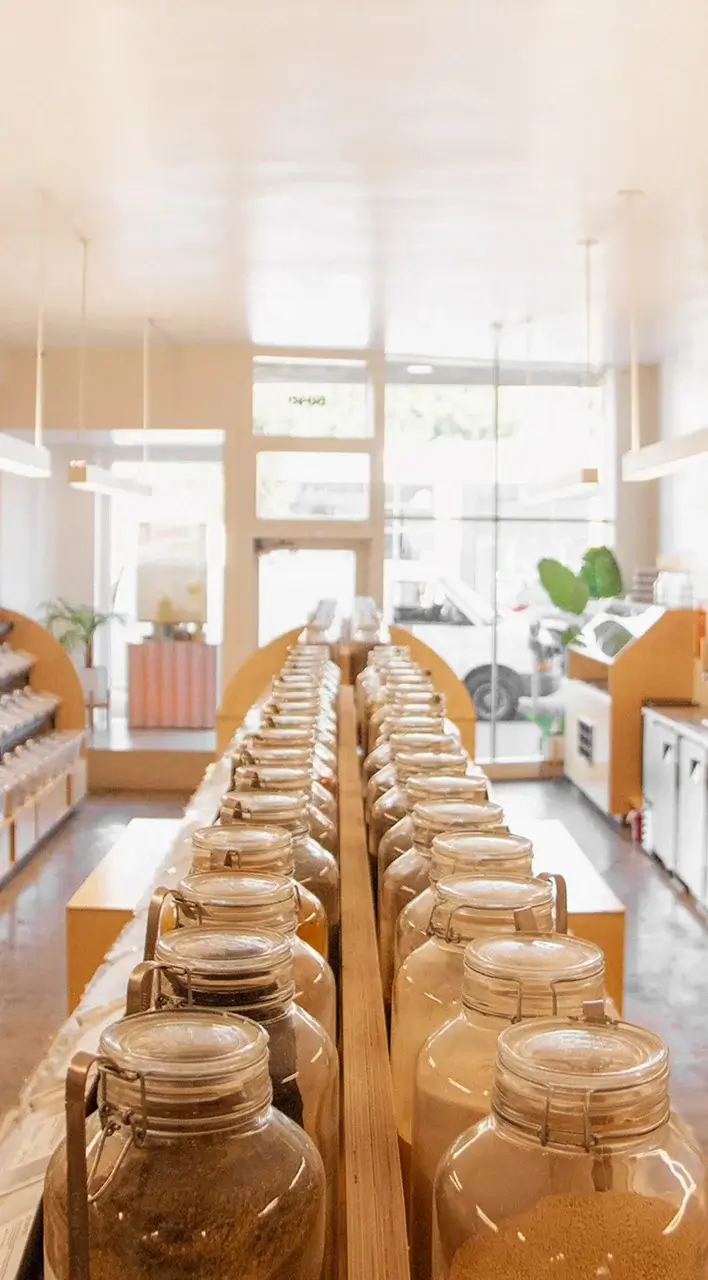

Re_grocery: direct from the farm
After living in San Francisco and enjoying bulk plastic-free shopping at the city’s iconic Rainbow Grocer, Joseph Macrino returned to Los Angeles in 2016. “ There weren’t any options in L.A. like that,” he says. So, he created his own. re_grocery’s first location opened in April 2020.
TAKE ACTION
Learn to reduce your exposure to plastic in food.
From the start, the store was popular; five years later re_grocery has expanded to a chain of three stores. One in Studio City, another in East L.A. and one in Venice. Carrying everything from cooking oils, quinoa, and organic vegetables, they work to keep prices as competitive as conventional grocers.
“A lot of it has to do with the bulk nature of products we are purchasing,” Macrino explains. “For example, we purchase quinoa in 25lb bags. We get it directly from the farm after some processing and re-packing. It’s not going to another co-packer, where it is getting broken down into smaller packages. By avoiding that other middleman – the co-packer, we are able to price bulk packages cheaper.”
Customers at re_grocery weigh their containers when they arrive and receive a laser chip that is attached to the receptacle.When their goods are weighed at the check out the laser tag is scanned and the container weight is subtracted. The customer does not pay any extra for the container.
Roots Zero Waste Market: on demand ordering
The argument for wrapping a cucumber or head of cabbage in plastic is to maintain shelf life and freshness longer. At Roots, Rainey applies a “just-in-time ordering policy.” By ordering more frequently – often three times a week and only what she needs – food remains fresh. Roots sell eggs, milk, meat, and organic produce alongside bulk items such as olive oil, spices and rice. “We evaluate what’s moving on the floor seasonally and adjust to how people’s buying patterns are fluctuating at the time,” she says.
“We are an environmental company disguised as a retailer,” she says.
Roots operates on a closed-loop business model that fits with Rainey’s environment consciousness, who is adamant that recycling does not work.
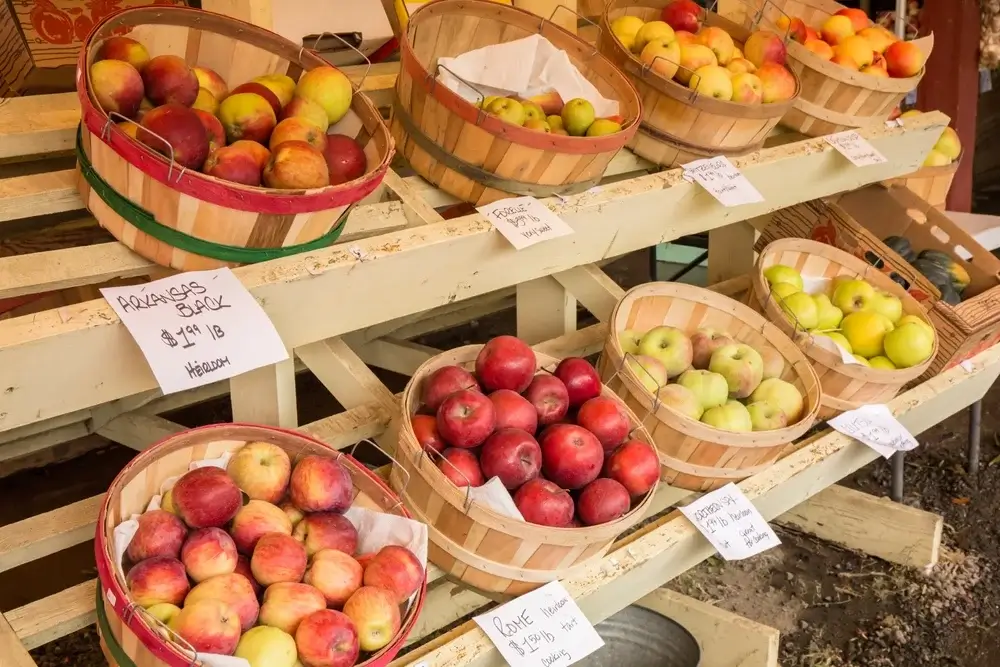

“There is no such thing as recycling,” she says. Not only do rules for what can be recycled vary by state: a plastic strawberry container, for instance, may be repurposed, but cling wrap may not be so lucky. Items such as toothpaste containers, chip bags, or juice boxes are formed with multiple layers of materials making them hard to break down and recycle.
“We never send anything to the landfill,” Rainey says. If, for example, an apple gets bruised in produce, it’s taken to the deli where it is pressed into juice, with the pulp repurposed for muffins and its core composted.
“We are an environmental company disguised as a retailer,” she says.

